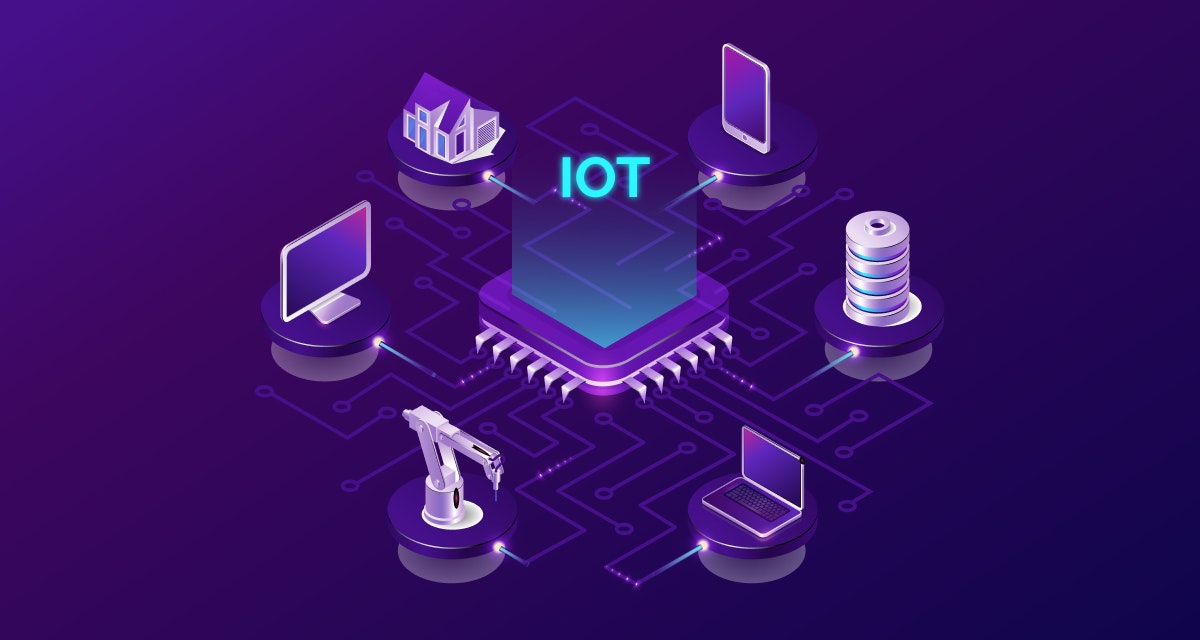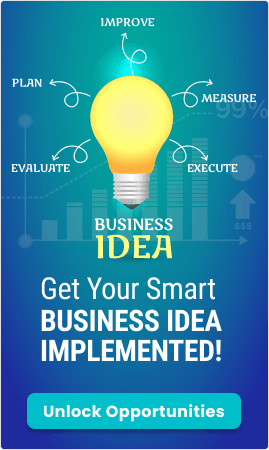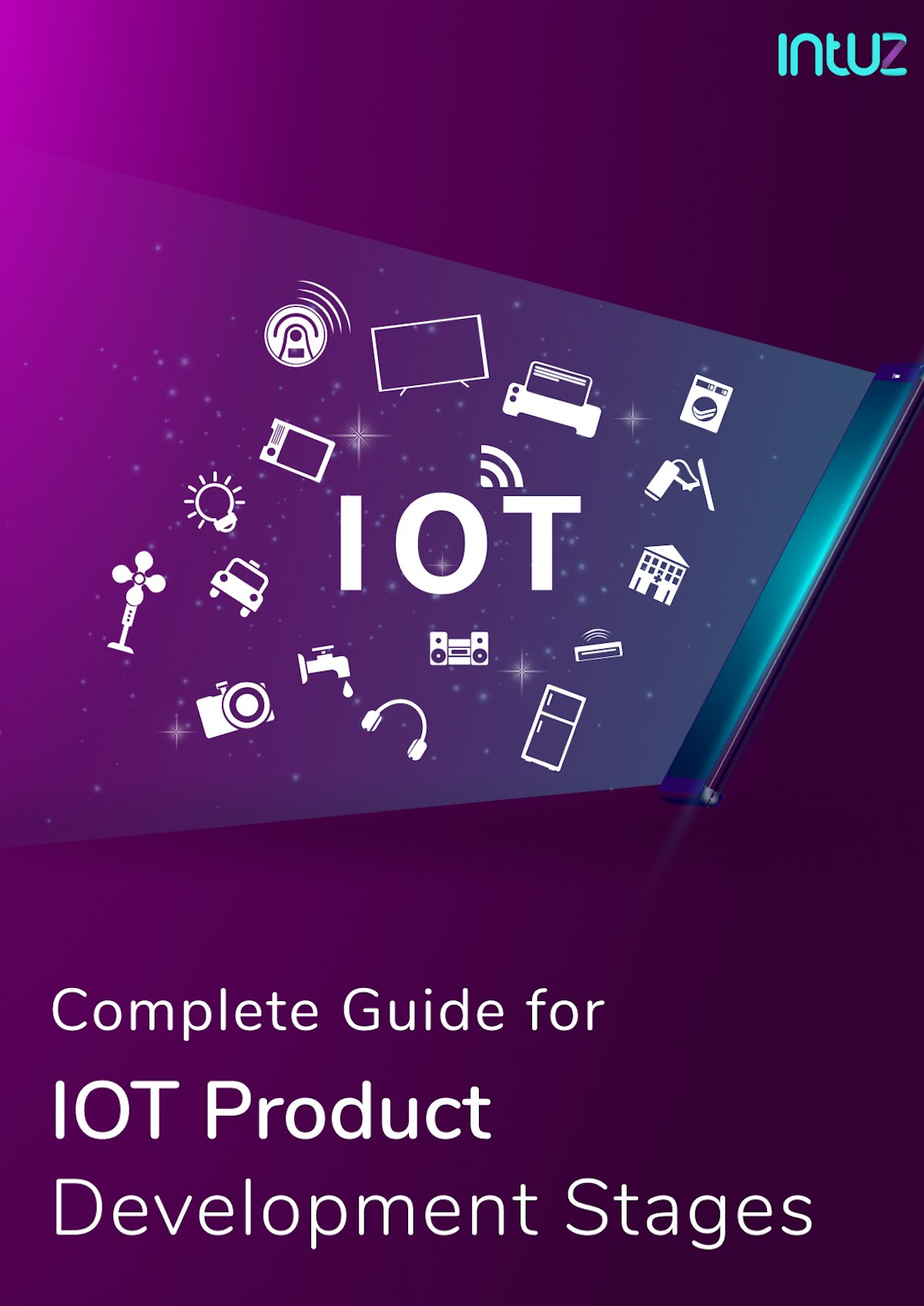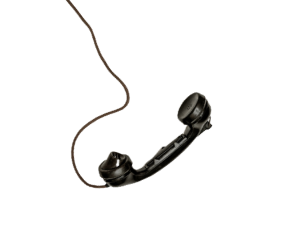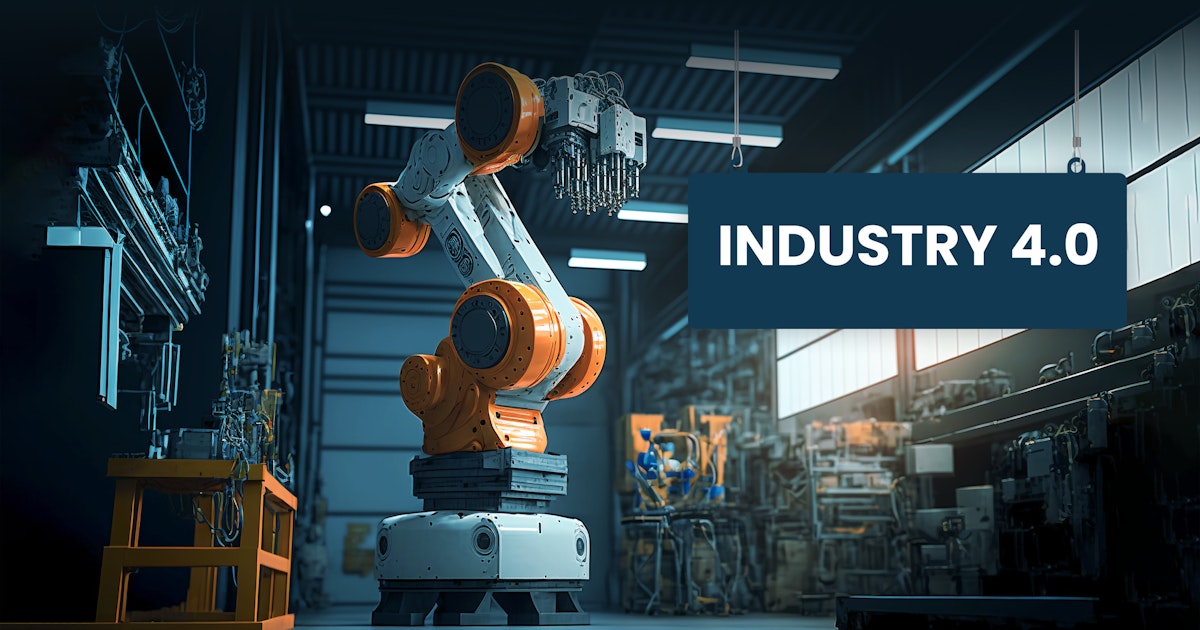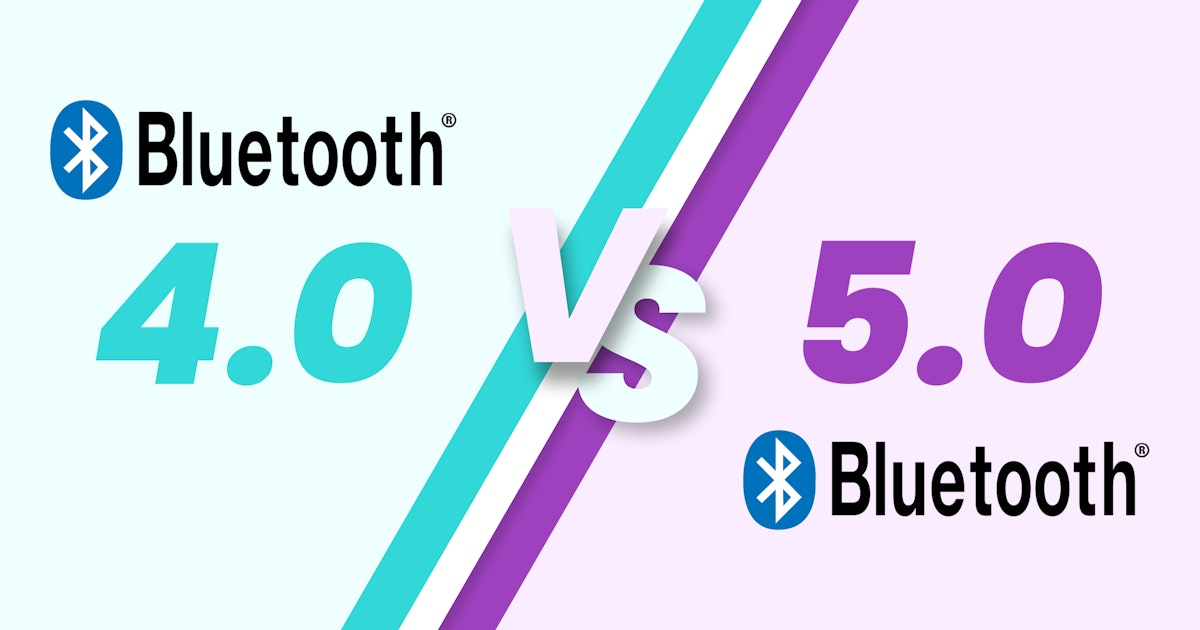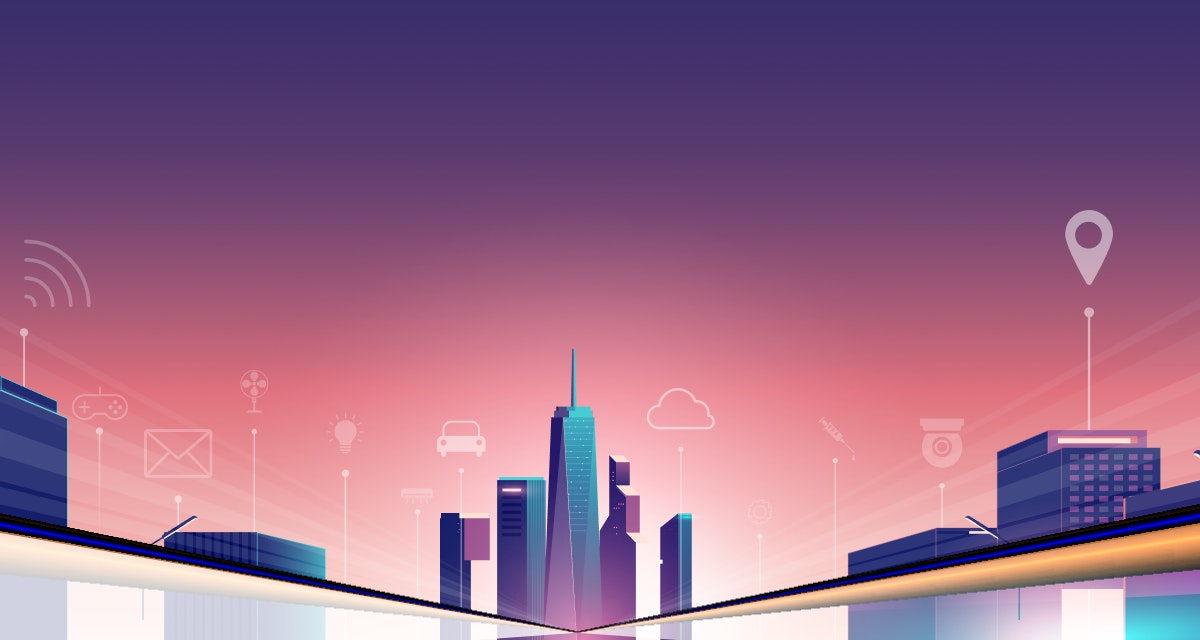Table Of Content
The IoT (Internet of Things) market is evolving at a rapid pace. The report has claimed that the global market value of IoT platforms is going to reach till $74.74 billion by 2023. The reason behind this growth is the huge demand for IoT platforms, IoT devices and other components. For different IoT devices IoT product development need, you must choose one of the best IoT platforms among all that are present in the market as per your business need.
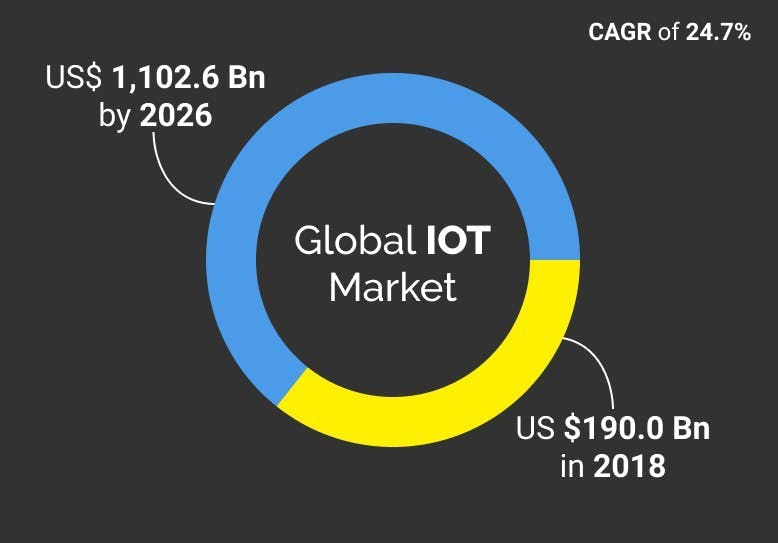
If we talk about the IoT architecture, then it can be explained as a system in which there are various elements, protocols, sensors, cloud services, actuators and layers. Typically, there are four stages of the IoT architecture that are sensors and actuators, Edge IT, Internet getaways and data acquisition systems and Data center and cloud.
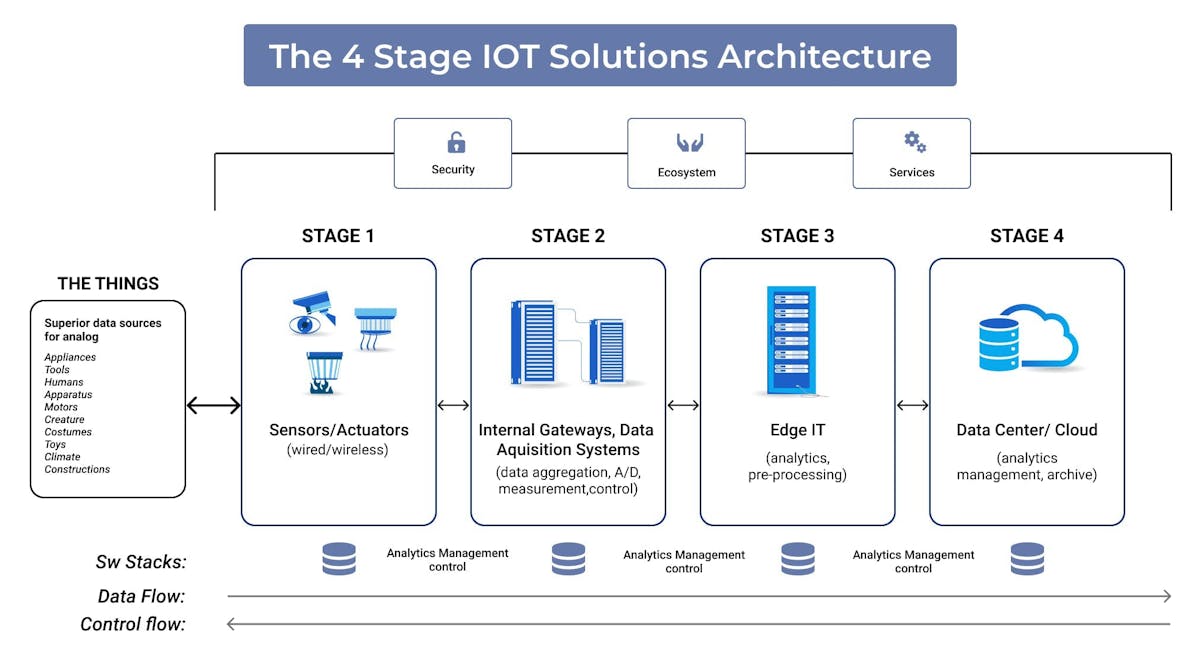
Are You Ready to Start Your IoT Project with the Right Platform?
Contact UsMoving towards IoT platforms then IoT platforms can be defined as a multi-layer technology that is utilized for managing and automating the connected devices. Also, these IoT platforms are useful in bringing physical objects to the online platform. That platform will offer you the best services for connecting the devices for doing machine-to-machine communication.
McKinsey&Company predicts that, by 2025, the overall economic impact of the IoT could reach $11.1 trillion, surpassing sectors such as "Mobile Internet", "Automation of knowledge work" and "Cloud technology".
The highlights of IoT cloud services and why its importance
IoT cloud services assist you in collecting and sending data to the cloud and finding out the information for providing to manage the devices. You can easily interact with your apps using the devices even in the offline mode. The most important feature of the AWS IoT platform is device management.
IoT Infrastructure Market is set to exceed USD 130 billion by 2024; according to a new research report.
IoT cloud services help in increasing scalability because IoT devices require a lot of storage for sharing information for important purposes. IoT in the cloud is like the StoneFly cloud that connects with Microsoft Azure to provide customers with huge space for increasing the demand of users. Also, it helps in resolving the storage requirements of customers.
Most popular IoT development platforms & tools in 2024
Let’s see detailed information on the most popular IoT platforms
1. Amazon AWS IoT Core
It will help you in connecting diverse devices to the cloud. Amazon AWS IoT core is a managed cloud service. It will permit devices to connect with the cloud and communicate with other devices and cloud apps. It will provide huge support for MQTT, lightweight communication protocol, and HTTP.
Features of Amazon AWS IoT Core -
- It can process a large number of messages
- It is a trustworthy and safe platform for routing messages till AWS endpoints and other devices
- It can track your apps and communicate even when you are not connected
- It will allow you secure access to your devices
- Using this platform, you will be able to make use of other AWS services like Amazon Kinesis, Lambda Amazon QuickSight, and more such
2. Microsoft Azure IoT Suite
Microsoft Azure IoT suite is an open-source cloud-based platform that assists in bringing local intelligence to the distributed IoT. This platform is designed for diverse industry needs. It can serve different industry sectors from manufacturing to transportation and retail. It will provide different solutions for remote monitoring, smart spaces, connected products, and predictive maintenance.
Features of Microsoft Azure IoT Suite -
- It supports an instant device registry that will build a unique identity for every device
- It offers a cloud-based dashboard that provides instant access to data from different devices and apps
- It allows real-time streaming of analytics for improving decision-making ability
- It facilitates continuous data analysis for actionable insights
- It offers a remote monitoring solution for keeping track of all the devices and apps
3. Google Cloud Platform
Google is everything to us in today's time. It is growing high even in the field of the cloud platform. It is a multi-layer secure infrastructure. It assists in enhancing the overall operational efficiency. It offers predictive equipment maintenance and solutions for smart cities
and building and real-time asset tracking.
Features of Google Cloud Platform -
- Machine learning has an immense capacity that any IoT will need
- It provides real-time business insights for globally dispersed devices
- Strong Artificial Intelligence capabilities
- Huge support for location intelligence
- Ability to speed up the business processes
- Can increase the device work rate
- Utilizes cloud services to minimize the cost
4. IBM Watson IoT
IBM Watson IoT is a Pass-Based development platform that is offered by IBM. The platform will help you capture and investigate data for machines, devices equipment and search the understanding for making better decisions. Also, the IBM Watson IoT platform will allow you to optimize your operations and resources.
Features of IBM Watson IoT -
- It offers an open container architecture that will support hassle-free migration of workloads to the clouds
- It will help in building modernizing and connecting devices with apps on the cloud without any efforts
- It analyzes the unstructured data and understands the data pattern for extracting valuable insights
- It provides a dashboard for enhancing the visualization
- It provides analytics service as an add-on service
5. ThingWorx
The ThingWorx platform offers risk management solutions with low app development costs and less app-creation time. It has flexible solutions for distributing full app design, and run-time, and consists of an intelligent environment. The platform is even popular for its fast app development process and distribution of different IoT solutions. It also offers flexibility and scalability for the future distribution and benefit of the tech world.
Features of ThingWorx -
- It provides easy connectivity of more devices to diverse platforms
- It can take away the complexity of IoT app development
- It can share the platform among diverse developers to ensure fast development
- It helps in the integration of your device with the machine learning tools for automating big data analytical solutions
- It helps in the deployment of embedded, on-premise, or cloud IoT solutions
6. Cisco IoT Cloud Connect
It is a mobility cloud-based software suite. This IoT solution is used for mobile operators and is fully optimized and utilizes the network. Cisco offers IoT solutions for security, networking, and data management purposes. The Cisco IoT Cloud Connect platform mainly offers data and voice connectivity.
Features of the Cisco IoT Cloud Connect -
- It provides a cloud-based dashboard that offers a better view and controls the IoT gateways
- It supports data computation in a distributed network to ensure optimum use of resources in the network
- It allows free-flow of data between the connected devices and apps that are based on the cloud
- It provides real-time updates
- It offers granular and real-time visibility
7. Oracle IoT
With the help of Oracle IoT, you can connect diverse devices to the cloud, perform the analysis of data from the devices in real-time, and perform integration of data with the enterprise apps or web services. It supports the integration with oracle and non-oracle apps and different IoT devices with the help of REST API.
Features of Oracle IoT -
- It allows for creating IoT apps and can connect the device to JavaScript, iOS, Java, Android, and C POSIX
- It will assist in extending the supply chain, HR, ERP, and customer experience apps
- It offers operational efficiency and worker productivity to be increased and improved
- For analyzing the data, it offers features like data enrichment and stream processing
- With the help of REST API, integration can be done using Oracle and non-oracle apps and different IoT devices
8. SAP
SAP is yet another domain that is beneficial for remote management and monitoring every single device that can be put in your IoT framework. Remote devices can be connected directly or with the help of cloud management. The analytical enables the developers to make ready, sort out, and focus on the collected data from the meters, sensors, and IoT gadgets.
Features of SAP -
- It offers the option of using IoT data for building and combining AI apps
- It has reliable message processing
- It helps in bridging the gap between legacy and IoT protocols
- It offers secure data consumption
9. Bosch IoT Suite
The Bosch IoT Suite is a comprehensive and versatile IoT platform designed to streamline the development and management of connected devices and applications. It offers a robust set of tools and services that enable businesses to quickly build, deploy, and scale IoT solutions across various industries. With its focus on security, scalability, and interoperability, the Bosch IoT Suite empowers organizations to harness the full potential of IoT technology, from device connectivity to data analytics and beyond.
Features of the Bosch IoT Suite include -
- Secure device connectivity and management
- Real-time data processing and analytics
- Flexible cloud deployment options
- Open standards and protocols support
- Seamless integration with existing IT systems
- Scalable architecture for handling millions of devices
- Advanced security measures and encryption
- Comprehensive APIs for custom application development
10. Samsung SmartThings
Samsung SmartThings is a versatile and user-friendly IoT platform that enables seamless connectivity and control of various smart devices in your home. It offers a centralized hub and mobile app, allowing users to automate and manage their smart home ecosystem effortlessly. With its wide compatibility across different brands and protocols, SmartThings provides a comprehensive solution for creating a connected and intelligent living space. The platform's intuitive interface and robust features make it an excellent choice for both beginners and advanced users looking to enhance their home automation experience.
Features of Samsung SmartThings -
- Wide device compatibility across multiple brands and protocols
- Centralized hub for connecting and controlling smart devices
- User-friendly mobile app for remote access and control
- Customizable automation routines and scenes
- Integration with voice assistants like Bixby, Alexa, and Google Assistant
- Real-time notifications and alerts for device status and events
- Energy monitoring and management capabilities
- Secure encryption and authentication protocols for data protection
11. Losat
Losant is a powerful enterprise IoT platform designed to help businesses build sophisticated connected solutions. It offers a user-friendly visual workflow engine, real-time data visualization, and robust device management capabilities. Losant's cloud-based infrastructure enables seamless scalability, while its drag-and-drop interface allows for rapid application development without extensive coding knowledge. With support for various protocols and integrations, Losant empowers organizations to create, deploy, and manage complex IoT systems efficiently across multiple industries.
Features of Losant -
- Visual workflow engine for building complex IoT applications
- Real-time data visualization and dashboards
- Comprehensive device management and provisioning
- Edge compute capabilities for local data processing
- REST and MQTT APIs for easy integration
- Multi-tenancy support for enterprise-scale deployments
- Robust security features including encryption and access control
- Custom branding options for white-label solutions
12. Particle
Particle offers different IoT solutions for connectivity, hardware, device cloud, and apps. For better connectivity reasons, it offers three main products that are Wi-Fi, Cellular, and Mesh. Being an IoT software, it offers Device cloud, Device OS, IoT rules engine, and developer tools. Particle is being utilized by the Opti for the training purpose of the weather casting product.
Features of Particle -
- Capability to offer a reliable infrastructure
- The platform can be utilized by anyone and no need for any expert person to make its use
- It has a firewall-protected cloud Google Cloud or Microsoft Azure Ability to work with data whether it is on.
- It can easily get integrated with anything with the help of REST API for data purpose
An All-Inclusive Guide On The Top IoT Sensors In The Market
Learn More13. Altair SmartWorks
It is an end-to-end IoT platform and offers a platform as a service. Altair SmartWorks assists you in connecting devices, collecting data, managing devices and data, and building and running the app. It offers diverse functionalities like Listeners, rules, device management, custom alarms, triggers data export, and more.
Features of Altair SmartWorks -
- With the help of SmartWorks, you can get connected with any kind of device like gateways, machines, sensors, and such
- It consists of an open architecture
- With the help of REST API, you can send JSON data and XML
14. Cumulocity IoT
Cumulocity IoT is a comprehensive, cloud-based platform that enables businesses to rapidly develop, deploy, and manage IoT solutions at scale. It offers a user-friendly interface and robust capabilities for device management, data analytics, and application development. With its open and flexible architecture, Cumulocity IoT supports a wide range of protocols and integrations, making it suitable for diverse industry applications. The platform's emphasis on security, scalability, and ease of use has made it a popular choice for enterprises looking to harness the power of IoT technology without extensive coding or infrastructure management.
Features of Cumulocity IoT -
- Device management and connectivity across various protocols
- Real-time data processing and analytics
- Customizable dashboards and reporting tools
- REST API for seamless integration with existing systems
- Edge computing capabilities for distributed processing
- Robust security measures including encryption and access control
- Scalable architecture to support millions of devices
- Low-code development environment for rapid application creation
15. Arm Pelion IoT Platform
The Arm Pelion IoT Platform is a comprehensive, scalable solution designed to simplify the development, deployment, and management of IoT devices and applications. It provides end-to-end security, device management, and data analytics capabilities, enabling businesses to efficiently connect, provision, and update their IoT devices across various industries. With its robust infrastructure and seamless integration with Arm's ecosystem, Pelion offers a unified platform that streamlines the entire IoT lifecycle, from device to data.
Features of the Arm Pelion IoT Platform -
- Secure device provisioning and authentication
- Over-the-air (OTA) firmware updates
- Real-time device monitoring and management
- Data collection and analytics
- Integration with cloud services and third-party applications
- Scalable architecture supporting millions of devices
- Support for multiple connectivity protocols (cellular, LoRa, NB-IoT, etc.)
- Compliance with industry standards and regulations
16. Node-RED
Node-RED is an IoT programming tool used for wiring together hardware devices, online services, and APIs creatively. The light-weight runtime is developed on Node.js. The IoT tool deploys the browser-based flow editor to deploy the flow in a single click.
Features of Node-RED -
- It comes with a built-in library enabling you to save valuable templates, flows, or functions for reuse.
- It is ideal for running IoT projects at the edge of the network on low-cost hardware such as Raspberry Pi.
- There are over 225,000 modules on Node-RED’s package repository, making it easy to add new functionalities.
- JavaScript functions can be created using the rich-text editor.
IoT Hardware Platforms Of 2023: What To Consider
Learn More17. KaaIoT
KaaIoT is a comprehensive open-source IoT platform designed to simplify the development and management of connected devices. It offers a scalable and flexible solution for businesses of all sizes, enabling rapid prototyping and deployment of IoT applications. With its robust set of features, KaaIoT streamlines device connectivity, data collection, and analysis, while providing powerful tools for remote device management and firmware updates. The platform's user-friendly interface and extensive documentation make it accessible to developers of varying skill levels, allowing them to create sophisticated IoT ecosystems efficiently.
Features of KaaIoT -
- Multi-protocol support (MQTT, CoAP, HTTP)
- Device management and provisioning
- Data collection and visualization
- Real-time analytics and reporting
- Over-the-air (OTA) firmware updates
- Scalable microservice architecture
- Security features including encryption and authentication
- Integration with third-party services and platforms
18. Eclipse IoT
Eclipse IoT is a comprehensive open-source platform that provides a robust ecosystem for developing Internet of Things applications. It offers a wide range of tools, frameworks, and technologies to support various aspects of IoT development, from device connectivity to data analytics. Eclipse IoT's collaborative community and extensive documentation make it an ideal choice for developers seeking flexibility and scalability in their IoT projects. With its modular architecture and support for multiple programming languages, Eclipse IoT enables developers to create diverse IoT solutions across industries.
Features of Eclipse IoT -
- Open-source platform with a large, active community
- Supports multiple programming languages and protocols
- Modular architecture for flexible and scalable development
- The comprehensive set of tools for device management and connectivity
- Robust security features and frameworks
- Cloud integration capabilities for data storage and analysis
- Extensive documentation and learning resources
- Cross-platform compatibility for various IoT devices and systems
19. ThingsBoard
This open-source IoT platform helps undertake various tasks, including processing and visualization of IoT solutions, data collection, and device management. It utilizes CoAP, MQTT, and HTTP protocols for connecting devices and handling data for them.
It allows you to create custom widgets using its built-in editor. Both cloud and on-premise deployment options are available. ThingsBoard also facilitates IoT protocols such as MQTT, HTTP, and many more.
Features of ThingsBoard -
- Create rule chains and event-based workflows for addressing your use case requirements.
- ThingsBoard can conveniently support millions of devices and multiple tenants.
- Choose a monolithic architecture for a small project or go for a microservices infrastructure to build a highly scalable project.
- Many resources and tutorials can help you get started with ThingsBoard.
- Its community is active on Gitter and Google Groups.
20. PlatformIO
PlatformIO is a versatile, open-source ecosystem for IoT development that simplifies the process of building cross-platform embedded systems. It offers a unified IDE with multi-platform build system, debugging, and library management capabilities. PlatformIO supports a wide range of development boards and microcontrollers, making it an ideal choice for both beginners and experienced developers. Its extensible architecture and integration with popular IDEs like Visual Studio Code enable seamless workflow customization, while its command-line interface facilitates automation and continuous integration in IoT projects.
Features of PlatformIO -
- Cross-platform IDE with support for multiple frameworks and boards
- Integrated debugger and serial port monitor
- Extensive library management system
- Command-line interface for automation and CI/CD integration
- Over-the-air (OTA) firmware updates
- Unit testing framework
- Integration with popular IDEs like VSCode and Atom
- Support for various version control systems
21. Hologram
Hologram is a comprehensive IoT connectivity platform that simplifies the process of deploying and managing cellular-connected devices at scale. It offers a unified solution for global cellular connectivity, device management, and data routing, enabling developers and businesses to bring their IoT projects to life quickly and efficiently. With its user-friendly interface and powerful APIs, Hologram streamlines the complexities of IoT development, allowing teams to focus on innovation rather than infrastructure management.
Key features of Hologram -
- Global cellular connectivity with support for over 196 countries
- Flexible data plans and pay-as-you-go pricing models
- Secure, scalable device management dashboard
- Robust APIs for seamless integration with existing systems
- Real-time data monitoring and analytics
- Over-the-air (OTA) updates for remote device management
- Automatic carrier switching for optimal connectivity
- Built-in security features including VPN and encryption options
22. Thinger
Thinger offers a rapidly scaling cloud infrastructure for connecting millions of IoT devices. You can combine them by integrating them with your project that utilizes REST API or manage them swiftly by running the admin console. Thinger’s main aim is to enable companies to help build IoT products. Moreover, it provides real-time data on its dashboard.
Features of Thinger -
- It is an open-source platform, and you can easily install the server in your cloud.
- Use Thinger’s hosted cloud infrastructure with a straightforward admin console if you want scalability, security, and speed.
- Turn on the light from the internet or change the temperature from your mobile device by leveraging sensors. You only need a single line of code on the MCU.
- You can find all the documentation you need about using Thinger on its official site.
- There is a reasonably active community — always ready to help you with all queries related to the IoT tool.
23. OpenRemote
It is a platform that you can use for creating and building IoT monitoring apps. The primary sectors leveraging the IoT tool are energy management, smart city, and mobility. It is open-source and also available with a commercial license.
You are free to connect any data source or data source for managing assets within one interface. Create rules for asset maintenance and easily leverage built-in tools for data processing with OpenRemote.
Features of OpenRemote -
- Definite automated actions and messaging with the editors of the platform.
- Design any application you want for your project and build a robust workflow.
- Gain insights into your data and take action during the development process.
- Transform your data into information and develop apps that fit the user workflow.
- Give your end-users or clients restricted access to the Manager so that they can view only their own assets.
- There is an active community for OpenRemote developers who help resolve queries and build the much-requested features.
24. Zetta
It is a platform apt for creating APIs for IoT devices. Based on Node.js, the platform combines REST APIs, reactive programming, and WebSockets for the job. It simplifies the development process due to direct access to conventions and protocols.
A Zetta server can run locally on hardware such as Intel Edison or anywhere on the cloud. If you use Zetta with visualization tools, you can also efficiently track device behavior.
Features of Zetta -
- Access the complete toolkit for building HTTP APIs for devices.
- Allow developers to assemble device apps, smartphone apps, and cloud apps.
- Build data-intensive platforms for various devices, and integrate smaller platforms into one coherent system.
- There is ample documentation about Zetta, including definitive info on APIs and supporting technologies.
- If you want to brainstorm big ideas, report a bug, or need help building a new device, you have the full-fledged Zetta community to rely on.
25. C3 AI Suite
The C3 AI Suite is a comprehensive enterprise AI platform designed to accelerate digital transformation and IoT development. It offers a scalable, end-to-end solution for building, deploying, and managing AI and IoT applications across various industries. With its powerful data integration capabilities, advanced machine learning algorithms, and intuitive development tools, the C3 AI Suite enables organizations to rapidly prototype, deploy, and optimize AI-driven IoT solutions. This platform empowers developers and data scientists to create sophisticated applications that harness the full potential of IoT data, driving operational efficiencies and unlocking new business opportunities.
Features of the C3 AI Suite -
- Unified data platform for seamless integration of diverse data sources
- Pre-built AI and machine learning models for rapid application development
- Scalable architecture supporting edge-to-cloud deployments
- Real-time data processing and analytics capabilities
- Low-code/no-code development environment for faster prototyping
- Robust security and governance framework
- Extensive library of industry-specific AI applications and templates
- AI model lifecycle management and MLOps tools
26. SiteWhere
It is an open-source, multi-tenant, microservice-based platform for building, employing, and supporting IoT applications at the industrial level. The platform uses technologies such as Kubernetes, Apache Kafka, and Docker. SiteWhere is open-source and free for life for both commercial and private use.
It facilitates significant data transfer, data processing and integration, storage, event handling, and device management. You can deploy SiteWhere on-premise or on multiple cloud platforms, including AWS, Azure, and GCP.
Features of SiteWhere -
- The platform offers the adjustment, collection, and processing of device inputs.
- SiteWhere runs on Apache Tomcat and is highly tuned with MongoDB and HBase applications.
- It connects gadgets with Stomp, MQTT, AMQP, and other protocols.
- SiteWhere adds widgets via REST services, self-registration, or in-batches.
- Each microservice in SiteWhere scales independently and integrates automatically.
- Plenty of user guides are available on the site for many purposes, including microservices, device interaction, system administration, and deployment.
- There is an active Discord community for SiteWhere IoT developers.
27. Kaa
It is one of the most flexible IoT app development and device management platforms. It comes with a variety of features such as data analysis, configuration management, data collection, data visualization, and so on. It gives you complete control over the IoT devices, and you can choose to host Kaa wherever you like, from the public cloud to cloud premises.
Features of Kaa -
- It helps connect and manage devices using REST APIs or graphical APIs.
- Kaa supports open IoT protocols, ultimately ensuring user safety information.
- You will find resources and documentation on general Kaa concepts on the website.
- Add a feature-specific platform, connecting transportation-agnostic links and different IoT devices.
- It is a hot favorite among renowned sectors and enterprises because of its low development costs, business app customization, and direct hardware integration.
- Benefit from open APIs to integrate Kaa features into your applications and modules.
28. Arduino IDE
It is one of the most flexible IoT app development and device management platforms. It comes with a variety of features such as data analysis, configuration management, data collection, data visualization, and so on. It gives you complete control over the IoT devices, and you can choose to host Kaa wherever you like, from the public cloud to cloud premises.
Features of Kaa -
- Simple and intuitive user interface
- Cross-platform compatibility (Windows, macOS, Linux)
- Built-in code editor with syntax highlighting and auto-formatting
- Extensive library management system
- Serial monitor for debugging and communication
- Support for multiple Arduino board types and third-party hardware
- One-click compile and upload functionality
- Active community and abundant learning resources
29. Distributed Services Architecture (DSA)
DSA is an open-source IoT platform that enables device inter-communication, applications, and logic at every layer of the IoT infrastructure. The aim is to unify the differing services, devices, and platforms into a structured and adaptable real-time data model. DSA aims to build a solid community of makers, manufacturers, and solution providers in the world of IoT.
Features of DSA -
- It allows purpose-built products and services to engage with each other in a decentralized fashion.
- It enables a network architect to distribute functionality between detached computing resources and platforms.
- It has a network topology that comprises various DSLinks running on edge devices connected to a tiered hierarchy of brokers.
- You can find many resources and guides on using DSA properly on GitHub.
- If you require help, get in touch with the community on Slack and Google Groups.
30. Helium
Helium is a decentralized wireless network designed for Internet of Things (IoT) devices. It leverages a blockchain-based incentive model to create a global, distributed network of hotspots that provide long-range wireless coverage for IoT devices. Helium's unique approach combines low-power, long-range connectivity with cryptocurrency incentives, allowing individuals and businesses to deploy hotspots and earn rewards while contributing to the network's growth and coverage.
Features of Helium -
- Decentralized network architecture
- Long-range, low-power wireless connectivity (LoRaWAN)
- Blockchain-based incentive model
- Cryptocurrency rewards for hotspot operators
- Open-source hardware and software ecosystem
- Easy integration with existing IoT devices and applications
- Cost-effective deployment compared to traditional cellular networks
- Global coverage potential through community-driven expansion
Top 25 IoT Development Boards In 2023 And How To Choose The Right One
Access the GuideComparison between Google Cloud, Microsoft Azure, Amazon AWS and Particle
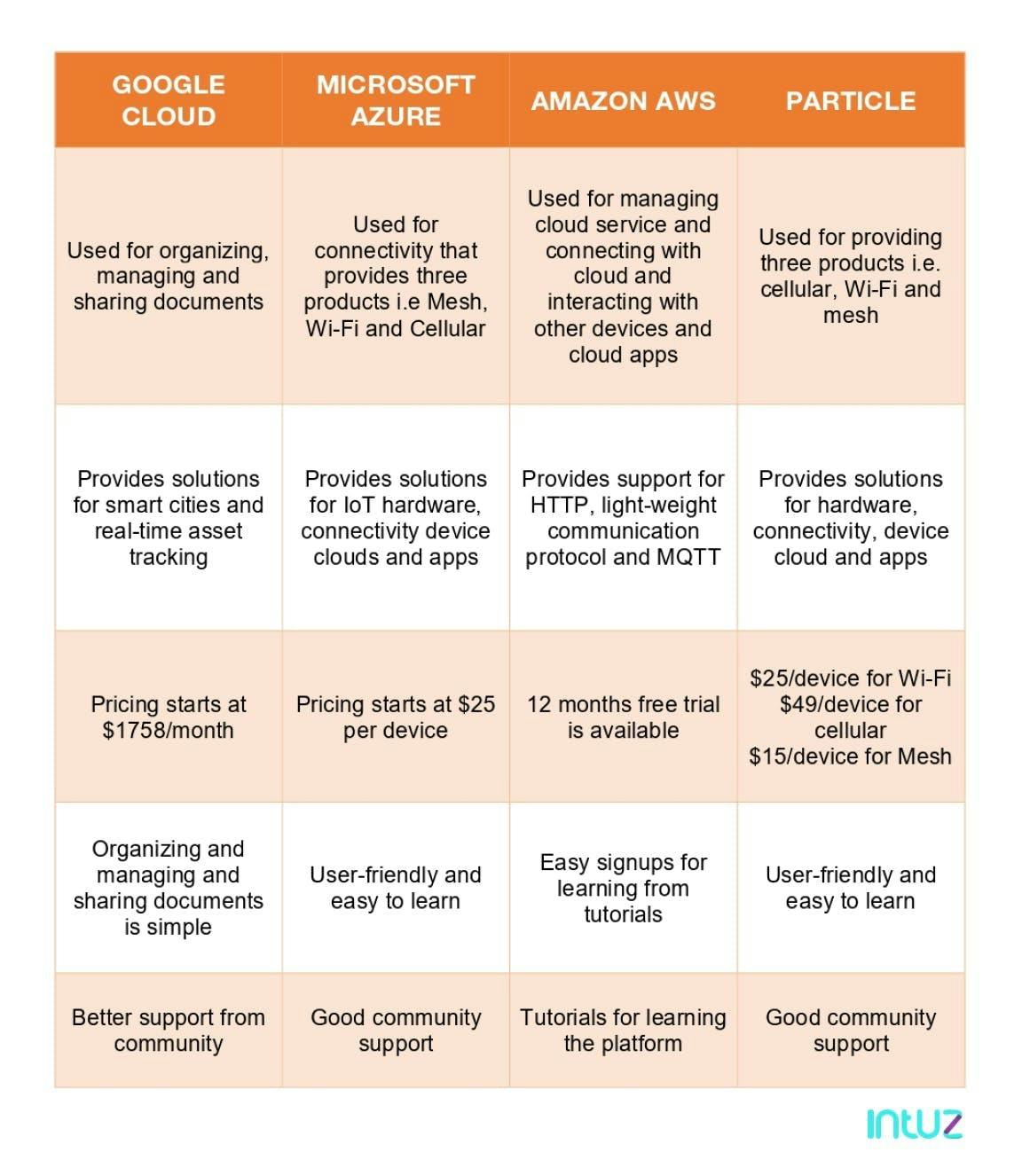
Conclusion
As the demand and scope of IoT are flourishing across diverse industry sectors, it has become an essential need to understand the top IoT development platforms and tools in detail.
Above-described are the points that will help you to choose the top IoT development companies among all that are present in the market. You can choose the IoT application development platforms as per your business needs. Understanding the requirement, the experts will guide you to make the final choice of IoT platform and tool.
We at Intuz have immense experience in providing IoT product development solutions to different clientele. Our expert IoT developers are highly talented and skilled in working on the IoT development project.
Book a 45-minute call with Intuz's IoT experts and you will get a free roadmap for IoT development and integration for your business.
